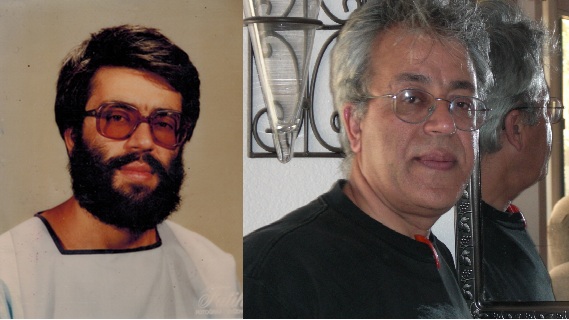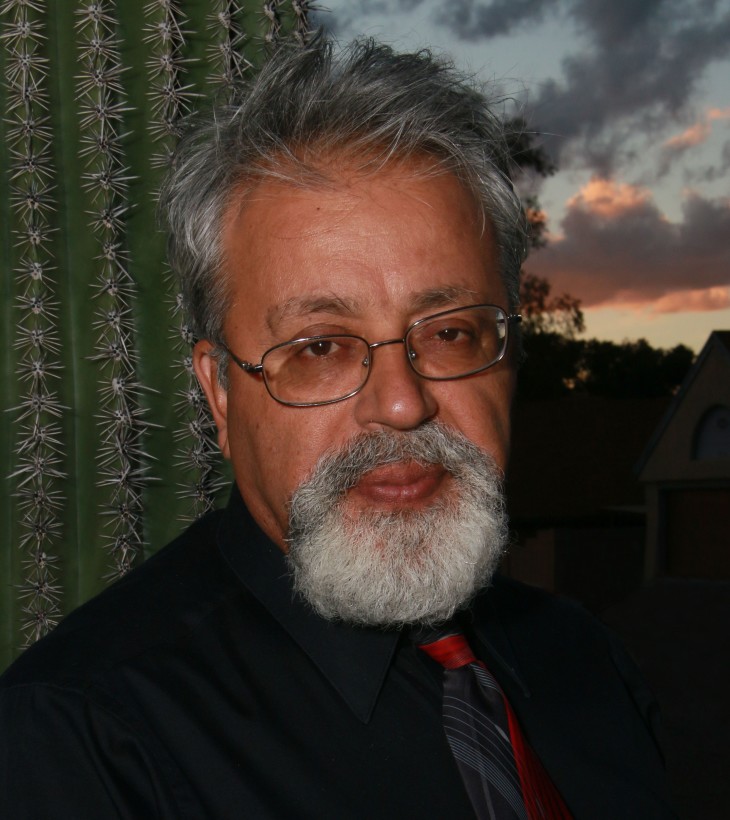
Nine Points of My life
Edip Yuksel
www.19.org
Though I am an ordinary man, the events in my life have been extraordinary. My life’s story is rich with internal and external conflicts, relentless quest for truth, courage, intellectual honesty, sacrifice, and dedication to promote peace, freedom, social democracy, and rationalism. My life story may provide a unique and precious insight how to approach the so-called “clash of civilization.” I am the child of that clash! I have a mirror in my hand for the Crusader and the Jihadi, for the West and East. I do not claim to have panacea for the problems of the world, but I have a perspective on some theo-political issues that worthy of consideration.
Here are some of the aspects of my life-story.
- Religious transformation: From leading Radical Islamist youth movement in Turkey to leading Islamic Reform movement… The anguish of a best-selling young author reaches to its zenith when he feels an uncompromising tension between his faith and reason, between conformity with the crowd and individual freedom, between seeking popularity and seeking the truth. After engaging a theological argument with a biochemist Muslim reformer residing in Arizona, finally experiencing an incredible transformation… In my upcoming autobiography, I share potent arguments that changed my religious conviction from being a fanatic Sunni to a liberal Muslim or what I call, a rational monotheist. In my biography, I share how my message of transformation has changed and continues to change the lives of thousands people around the world.
- Political transformation: Once a leader of an internationally connected youth movement, I had ties with Muslim Brotherhood of Egypt and Syria, and the Revolutionary Guards of Iranian revolution. With just a word, I mobilized several hundred young men to go to Afghanistan for jihad. I used to lead demonstrations that chanted “Death to America.” Though, I still condemn American Inc’s corrupting influence on American politics and its imperialistic wars and covert operations, I am now an American citizen enjoying the blessings and freedoms protected by the constitution of the USA. In my biography, I will share my insight and experience, my split feelings about the two faces of America, my American dream and American nightmare.
- Prison and torture: During the intermittent short periods in jail and four-years of prison, I was subjected to variety of tortures and inhumane conditions. While some of my prison-mates were cutting their wrists to commit suicide and literally hitting their heads to the walls of prison, I kept my mind busy with trying to solve math problems such as finding a formula for prime numbers or working on fitting a myriad of geometric shapes in boxes, etc. I was put in the same room with the leaders of a fascist Turkish youth organizations, the murderers of my brother. They tried to kill me several times by hiring felons on death-raw. My experience in Turkish prisons and my determination to keep my sanity, and its impact on my attitude towards life and death will inspire every person.
- The Family tragedy: I was the oldest son of an illiterate mother from an influential family and a prominent Sunni scholar and who was a respected leader of radical Islamist from 1975 until his death in 2005. One or two members of my extended family were always elected to Turkish National Congress. After my rejection of traditional Islam and the publication of my criticism, I was publicly disowned by my father, which led the media label me “apostate”, a code word meaning that “a betrayer whose blood should be shed according to the Sharia laws.” My father, my older sister, and two brothers cut their relationship with me. My older sister who was the closest person to me, rejected to talk to me for about 19 years, until she found out that she was cancer in Mecca. One of my brothers, who is a fanatic Sunni, loses his mind in rage when he hears my name. The tragedy of my family is a good example how dogmatism and fanaticism destroy strong ties among family members. A religion or sect that glorifies ignorance and gullibility can be very dangerous for its followers and others. As the Physicist Steven Weinberg once put profoundly, “With or without religion, you would have good people doing good things, and evil people doing evil things. But for good people to do evil things, that takes religion.”
- Losing the language of my mother: I spoke Kurdish until we immigrated to Istanbul at age eight. I learned Turkish in elementary school. Then, I studied Arabic and English in Middle and High school. In the last two years of high-school, the curriculum added another foreign language: Persian. By the time I graduated the high-school, I knew almost all the languages spoken in the Middle East. Unfortunately, the language that I knew the least was Kurdish, my mother tongue. Because of the racist Turkish policy that banned Kurdish, with the passing years I lost most of it. The difficulty that I experienced in communicating with my mother made me fully aware of the injustice inflicted to me and my people, the Kurds. This experience will be appreciated by all minorities who more or less experience similar difficulties in communicating in their mother tongues.
- Immigration for cause and love that saved my life: My immigration to the USA was not for economic reasons. It was forced upon me because of two things happening at the same time: my name became headline news in the Turkish media as an “apostate” as “the Turkish Salman Rushdie,” jeopardizing my life. Desensitized with “boiled frog syndrome,” I would not have left Turkey if my fiancé did not send the ring back from Tucson, Arizona. I was in love with her and my love created another incentive for me to immigrate and thus save my life. My early experience in America was occasionally a cultural shock, but mostly a wonderful dream coming true. When I asked from my fiancé’s parents the permission to marry their daughter, I had presented them with flowers worth of four dollars plus tax. I had spent the last five dollars in my pocket for those flowers.
- Spiritual experience: Those who know me complain about my questioning everything, about my skepticism, about my analytical approach to religion and culture. However, through a prophetic discovery of an incredible phenomenon in the Scriptures and my personal experience, I have become sure about the existence of God and his control. (I have been teaching philosophy classes at a community college for six years, yet my students usually cannot find out my conviction on metaphysical issues).
- Targeted by Al-Qaida: I survived at least five assassination attempts, and received numerous threats. My mentor, who became a father figure and helped me to change my paradigm, and personally and financially supported me to immigrate and stay in the USA, was assassinated by a terrorist group linked to Al-Qaida in January of 1990. The local media treated the event extensively for years, yet the national media mentioned the event and its link to al-Qaida only a few times. Though the murder of Rashad Khalifa has been considered as al-Qaida’s first operation on the soils of the USA, somehow it never received the attention it deserved. The murder of Rashad Khalifa provides insight about what ideas the terrorist “Islamist” organizations fear the most.
- An activist: I have been actively promoting Islamic Reform for about twenty years. Each year, I receive thousands of emails from around the world and I religiously spend several hours everyday to respond them. I occasionally participate in highly rated Turkish TV programs and discuss Islamic reform with leading Sunni scholars. In my recent trip to Turkey, I met many members of congress who were my comrades when I was Sunni zealot. They had cut communication with me for about nineteen years since they were angry with me and were considering me politically radio-active. The positive change in Turkey towards tolerance and appreciation of freedom of expression is very promising.



